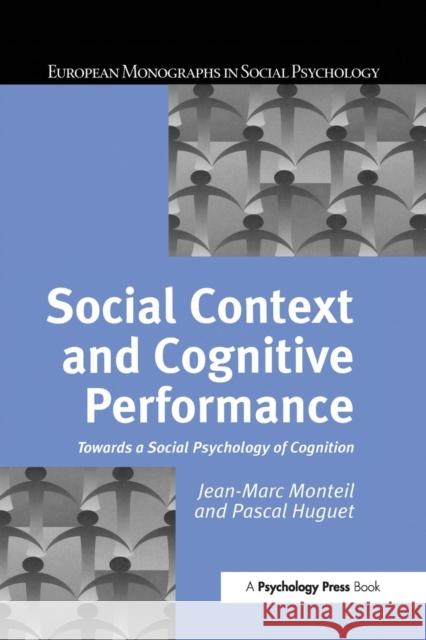Social Context and Cognitive Performance: Towards a Social Psychology of Cognition » książka
Social Context and Cognitive Performance: Towards a Social Psychology of Cognition
ISBN-13: 9781138873742 / Angielski / Miękka / 2019 / 176 str.
Social Context and Cognitive Performance: Towards a Social Psychology of Cognition
ISBN-13: 9781138873742 / Angielski / Miękka / 2019 / 176 str.
(netto: 153,88 VAT: 5%)
Najniższa cena z 30 dni: 159,60
ok. 22 dni roboczych.
Darmowa dostawa!
Based on twenty years of research on the social regulation of academic performances, this book offers theoretical and empirical arguments in favour of the inclusion of the social dimension of human beings as essential for their cognitive activities.
We all engage in social interactions, compare ourselves with other people, belong to social groups, and are the object of a myriad of categorisations. Not only do such social experiences affect cognition, but they actually determine its form and its content. Several experiments indeed reveal that cognitive performance depends on the relationship between the individual and the social context in which cognition takes place. And this relationship is not forged directly by features of the situation, but rather by personal construals of these features (most notably social comparison). This fact alone justifies granting the individual's social experiences a psychological status and it further strengthens the key idea of this book, namely that the social context only exists through the intervention of cognitive processes of contextualization (producing a "cognitive context of the self") such as those involved in autobiographical memory. A "social psychology of cognition" is suggested, in which the fashionable distinction between cognition and social cognition makes no sense.
From this innovative perspective it is indeed more the social nature of the individual rather than that of the object to be processed that defines the social nature of cognition. Well-known phenomena such as social facilitation and social loafing as well as established educational practices are also re-examined from this perspective.











